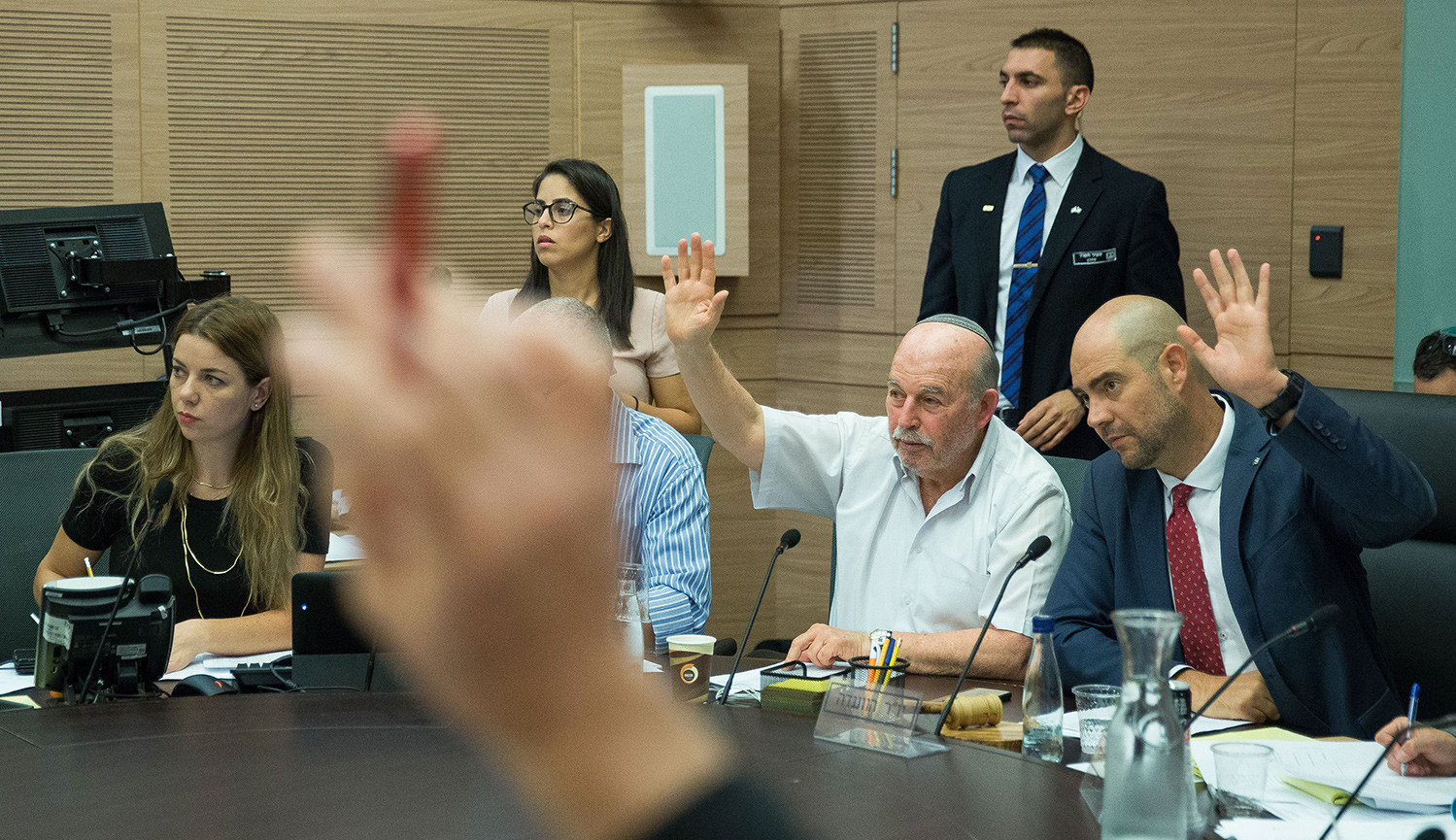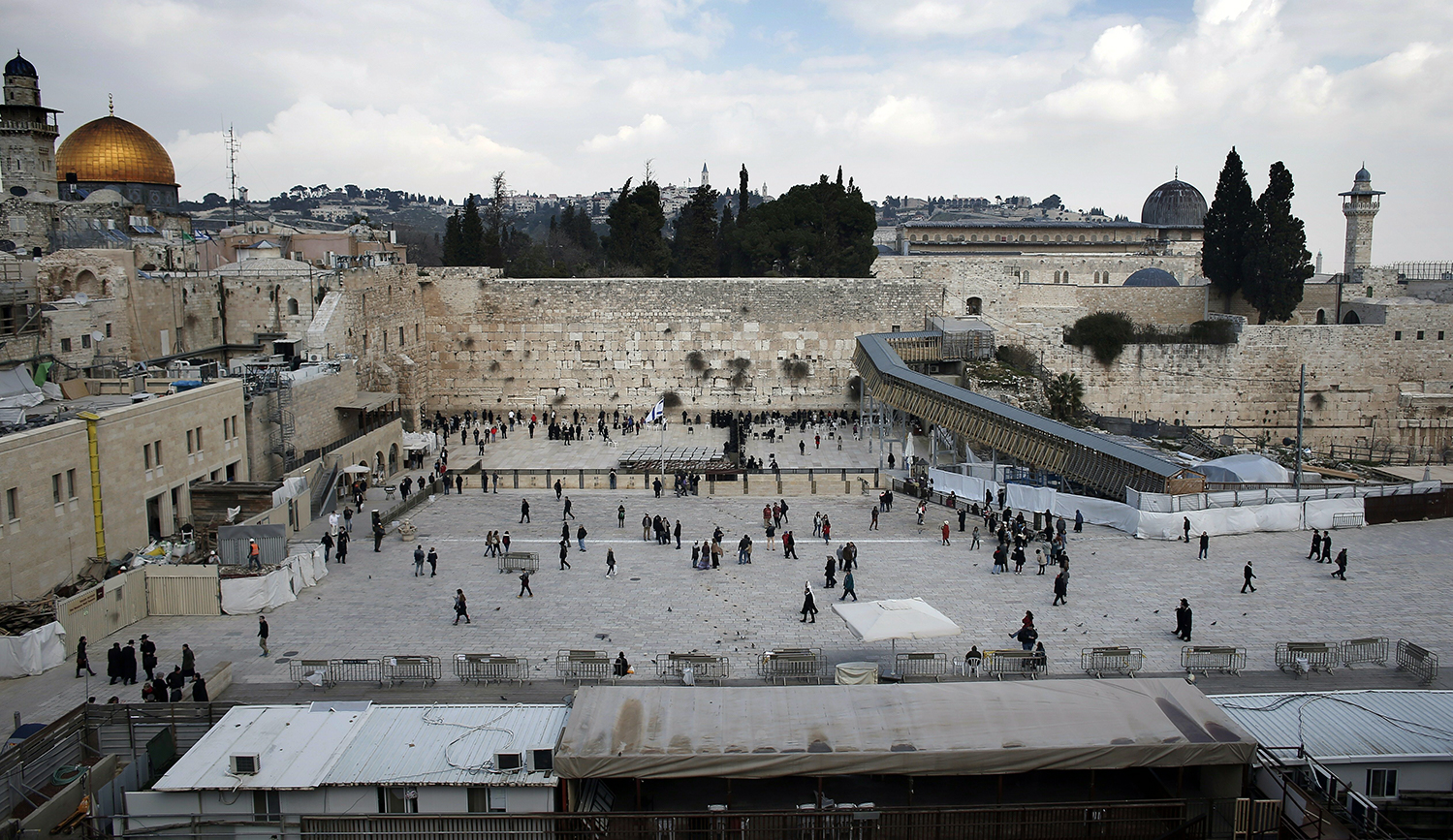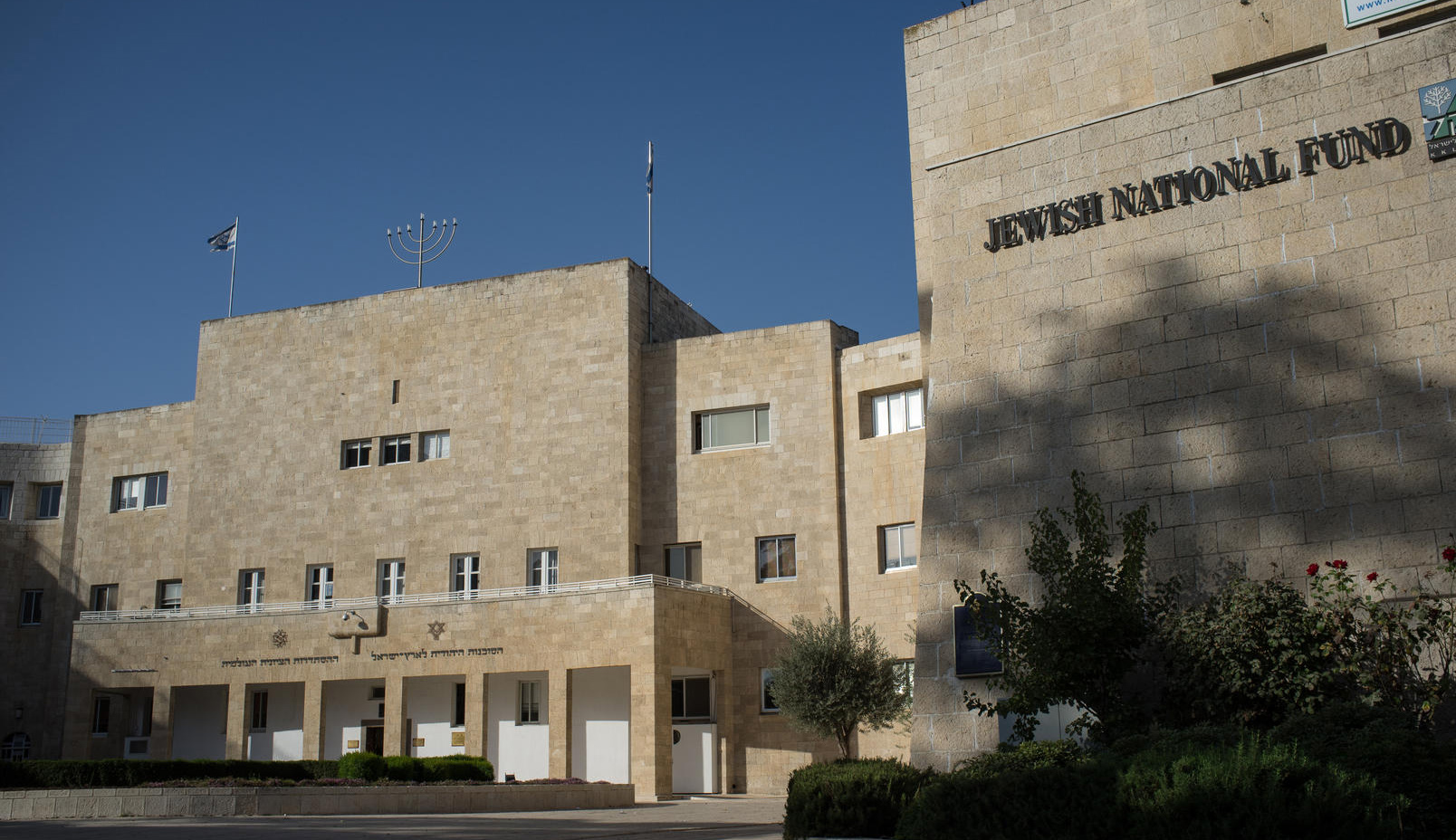We appreciate the generous, thoughtful, and challenging responses to our essay, “Can American and Israeli Jews Stay Together as One People?”
To begin with, we note that all four respondents—Allan Arkush, Elliott Abrams, Michael Oren, and Ammiel Hirsch—express greater enthusiasm for our analysis of the strains in the Israel-diaspora dialogue than for our proposal for overcoming them. And we get that. Normally, when you propose a new institution, you invest a great deal in designing it. We didn’t. Likewise, to induce (or scare) people into joining with you, you emphasize just how desperate the situation is. We didn’t do that, either.
This was deliberate on our part. Without getting distracted by details or paralyzed by hopelessness, we wanted to zero in on the question of dialogue. Therefore, in thinking about how best to propose the establishment of a Jewish People’s Council (JPC), we made two strategic decisions. First, in analyzing the Israel-diaspora relationship, we would focus on the lack of a healthy dialogue—because only those who believe a better dialogue can help will help better the dialogue. But second, along with our discussion of the forces ripping the Jewish people apart, we would emphasize the forces keeping them together—because only those who realize how solid we still are will invest enough in solidifying us further.
Each of our respondents is properly alarmed—as are we—by today’s “troubled” and “troubling” trends and by “the unprecedented nature of today’s crisis” (to quote randomly from the responses). Yet none of the four really relates to what we reported as the glad tidings: a new mutuality that coexists, paradoxically, alongside and within the bad news. While acknowledging that two strong, stable communities, living under different conditions, are bound to diverge, we also highlighted the convergence taking place between them: a new intimacy that has fostered an unprecedented interdependence, with diaspora Jews turning to Israel for help in building their Jewish identity and Israelis turning to diaspora Jews for help in fighting the worldwide campaign to delegitimize the Jewish state.
Without this new sense of genuine interdependence—the sense that we want and need one another—a renewed dialogue wouldn’t work, nor would a JPC be necessary.
To be sure, those most alarmed by the evidence of rupture also fear that more talking will only trigger more fighting. Fair enough—in our essay, we took pains to stipulate the dangers posed by the new interdependence: intense intimacy can indeed be more volatile than despondent distance. But therein, precisely, lies the urgency of this moment, which must be seized in order to build, or to rebuild, an instrument adequate to the demand. With a majority of the world’s Jews soon to be living in the Jewish state, and a settled minority not leaving the diaspora, the Jewish people need a platform for constructive dialogue, a forum for managing tensions and for brainstorming solutions.
Nevertheless, we do appreciate our four respondents’ thoughtful challenges regarding both the need for a new organization and the question of how it would work. So, to be more explicit: we aren’t in favor of a new organization for the sake of newness. In our essay we acknowledged the historic contributions made by both the World Zionist Organization (WZO), mentioned specifically by Elliott Abrams, and the Jewish Agency for Israel (JAFI). Today, JAFI has accumulated much valuable experience speaking to the Israeli government in the name of the diaspora, and to the diaspora in the name of Israel.
We would welcome JAFI in partnership with WZO or any other organization. But, as we noted, JAFI has been concentrating on fostering grassroots relationships, not on global policy-making. In this same connection one might also cite Va’adat Ti’um, the committee that coordinates the Israeli government with WZO-JAFI and that is already mandated to discuss mutual problems—but whose format and agenda are limited. Alternatively, the president of Israel or the speaker of the Knesset could launch the project with a small group.
In other words, a Jewish People’s Council could be brought to life in various ways, including through an existing organization or as a new enterprise. Our aim is to improve the dialogue; the organizational vehicle is simply the means. Hence our decision first to make the case for a forum for dialogue, next to bring concrete evidence of its ability to work—as explored in the section of our essay on the dispute over public prayer at the Western Wall—and finally to explain the urgency of exploiting this moment of greater interdependence.
Where the details of building that instrument are concerned, we freely admit that we kept our discussion abstract, not to say ambiguous. But we persist in believing that drawing up organizational blueprints—whether for a new or a renovated platform—is pointless until partners step up who are passionate about the need for such a forum and ready to help turn an idea into a properly defined initiative. The sparkplugs would have to be a small group of key players committed to making the enterprise work, no matter what. Over time, once functioning, such a forum, would need to build credibility among more and more constituencies, elicit more and more buy-in through electoral participation, and eventually evolve into a broad-based, constructive organization.
Insider information reinforces our common-sense instincts here. During his nine years at the helm of JAFI, Natan Sharansky occasionally asked key figures on both sides of the Israel-diaspora dialogue what they thought about launching such an initiative by reforming existing institutions. Most, for different reasons, were reluctant. Israeli politicians couldn’t imagine investing the time, effort, or political capital that would be required to launch a venture whose ability to heal the growing rift they already doubted. Individual diaspora leaders, for their part, were equally skeptical—often worried that any new mechanism might render their own organization irrelevant. Indeed, as Abrams wisely notes, all politics is local.
To move to more specific concerns: Allan Arkush is not alone in his skepticism about the depth of younger Jews’ commitment to Jewish peoplehood; numerous observers have expressed worry about an entire lost generation. We respectfully disagree. Both of us have had sustained contact every year with many young Jews who don’t simply pay rote homage in opinion surveys to some vague connection with the Jewish people but who feel that connection in their gut. In hundreds of conversations with Birthright participants, interns from the JAFI-run Masa Israel program, and inspired alumni from all kinds of encounter programs, both of us can bear witness to the intense longing of many Jewish twenty-somethings to belong, to be part of something that is at once theirs and greater than themselves, and, yes, to serve.
This frank enthusiasm, and its concomitant hunger both for learning and for active engagement—often after a rather superficial first taste—underlines what a poor job is being done educationally to inspire this next generation—exactly as Ammiel Hirsch, on the basis of long experience, asserts in his response. Thus, developing a JPC should not distract from or substitute for the hard work of nurturing new generations of committed, passionate, critical Jews by means of identity-building experiences, proper education, inspiring role models. The real challenge here lies in investing in educating and inspiring these young Jews—from birth, as Hirsch stresses—about their heritage and their people’s mission.
Toward that end, Michael Oren is also right to caution us on the need to “demarcate the baselines”—that is, to define what it means to be at once a scattered people and a people whose majority live in the one Jewish state, and then (or only then, as Oren insists) to figure out how to assume shared responsibility not just for our physical but for our cultural and spiritual survival. No program, not even Birthright, is a silver bullet. But an effective Jewish People’s Council charged with tackling the toughest issues facing communities on both sides of the Atlantic and beyond could serve as both a guiding light and a guiding hand in conceiving, implementing, supervising, and managing solutions.
Which brings us back to the dispute over prayer at the Western Wall—the “kotel controversy”—and also to the structurally similar and no less bitter dispute that broke out this summer over the Knesset’s “Nation State” bill. In our essay we dwelled on the prolonged contretemps over prayer at the kotel in order to illustrate not only the institutional and ideological forces menacing the very possibility of dialogue but also the great potential that nevertheless continues to inhere in a dialogue conducted under better and more effective auspices.
As a thought experiment, just try imagining how this summer’s vituperative outcry over Israel’s “Nation State” bill might have gone had a Jewish People’s Council already been functioning. Through intense, comprehensive, and preliminary debates, before the Knesset session even convened, critics of the proposed bill might have had a chance to take in and absorb the very real and very reasonable concerns that in today’s circumstances impelled Israel thus to define and to defend its legitimacy as a Jewish state. Correlatively, supporters of the bill might have taken in and absorbed the critics’ fair concerns about the bill’s perceived disrespect for the diaspora, for Israel’s non-Jews, and for liberal sensibilities altogether.
A constructive dialogue beforehand, with or without vicious shouting matches, might have preempted some of the apocalyptic rhetoric in the aftermath of the bill’s passage, with one side predicting the certain end of Israel as a Jewish state, the other the certain end of Israeli democracy (one of the modern conversational tics that our essay analyzes). Perhaps, instead of an awkward spate of last-minute course corrections and an eleventh-hour attempt to hear from diaspora representatives, changes to the measure, implemented with JPC involvement, might have been incorporated in a more orderly fashion—again, before the Knesset convened—thus at the very least giving critics a greater sense of responsibility and muting the backlash.
In this case, as in the kotel controversy, the sharpest, angriest critiques from within diaspora Jewry came from the American Jewish left. And that is why our essay, at the risk of oversimplification, focused on how to strengthen this weakest and fraying link in the Jewish bond today: the link between the liberal majority of American Jews and the center-right majority of Israeli Jews. If a JPC can help improve things there, it can help everywhere.
We are realists. We understand that this initiative will probably have to start small and develop along the way. There were only 208 delegates at the first Zionist Congress in 1897. But just as, in May 1948, David Ben-Gurion and his cabinet didn’t wait to work out all of the ideological and practical issues before declaring the establishment of the state of Israel, and just as Israel today is known for improvising solutions to problems and stumbling toward consensus, we believe it is important to advance this initiative confidently and quickly, refining definitions on the fly. Despite all of the practical and ideological obstacles pointed out by our wise respondents and others, we need a Jewish People’s Council sooner rather than later, tackling our most pressing problems by tapping into our current strengths as a people.
More about: Israel & Zionism








